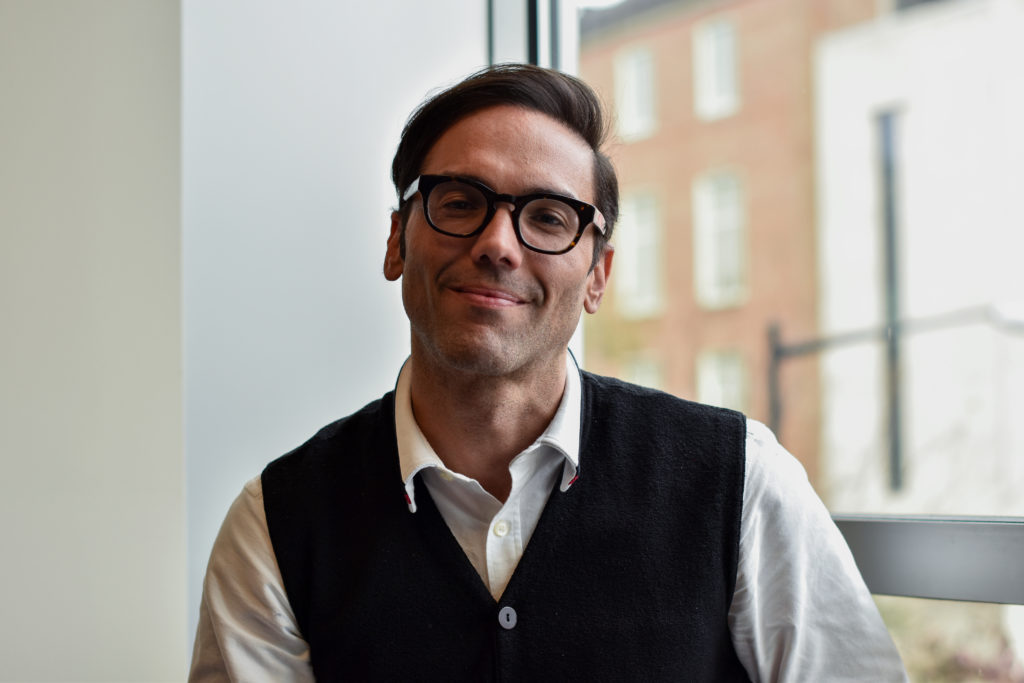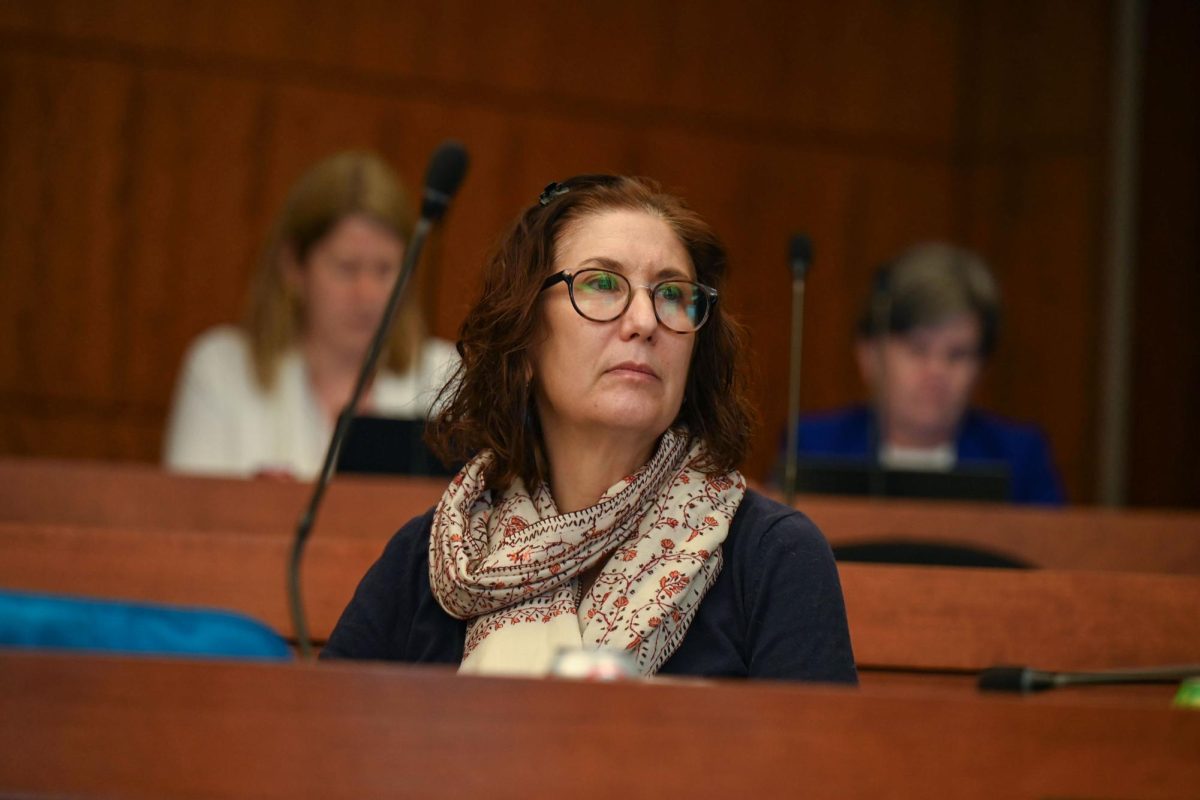A more than 300 percent increase in enrollment in a recently created undergraduate neuroscience major could expose more students to smaller academic departments like speech, language and hearing sciences, faculty said.
Fifteen students majored in neuroscience last academic year, the first year the degree was offered, but more than 60 students are currently enrolled in the major, according to institutional data. Faculty in the hearing sciences department in the Columbian College of Arts and Sciences said more students are taking advantage of the department’s course offerings as a result of the new major.
Francys Subiaul, an associate professor of speech, language and hearing sciences, said several faculty in the department are involved with the major through teaching courses that could count toward the major or organizing events for neuroscience students and faculty through the GW Mind-Brain Institute, a research center designed for students and faculty members to study cognitive and behavioral neuroscience, according to its website.
“These efforts in our department, the MBI and CCAS aim to provide students in GW diverse education and unique research opportunities in the neurosciences,” Subiaul said in an email.
Officials announced the creation of two neuroscience majors in April 2018 in the biology and psychology departments to respond to rising interest in the field from students and faculty. Students in the speech, language and hearing sciences major can choose to concentrate in the neuroscience of language and communication, according to the department website.
Subiaul said students in the speech and hearing major who concentrate in neuroscience of language learn the specifics of language structure and how words and phrases can have different meanings based on the person speaking.
“Majors in this concentration will prepare students for a variety of health fields including medicine, nursing and speech-language pathology, but also social work, education and business,” Subiaul said.
He said the majority of the “approximately 40 undergraduates” majoring in the department are concentrating in communication sciences and disorders. Nine students majored in speech, language and hearing sciences in 2015, according to institutional data.
“Language is among the most human of human behaviors and so the biological and neural basis of this fundamental behavior is inherently interesting to most,” Subiaul said in an email.
He said faculty are advertising the department’s most popular courses, like Autism and Brain and Language – two courses that count toward the neuroscience major – and designing social events to draw more undergraduates to major or minor in the department. Faculty are also creating social activities, like showing communication-themed films and inviting speakers to campus, throughout the year.
Shelley Brundage, the chair of the department, said the department changed its name from the Department of Speech and Hearing Sciences to better reflect the department’s more comprehensive focus and direction.
She said the change recognized the language component of the department, represented by research like Subiaul’s work on social communication for people with autism.
“Our name used to be Speech and Hearing Science,” Brundage said in an email. “We changed it to Speech, Language and Hearing Sciences to better reflect the variety of research and clinical topics in our discipline.”
Course offerings for majors in the department include Language: Structure, Meaning and Use and Speech and Language Disorders, according to the department’s website.
Brundage said members of the department are “proud” of its most recent class of master’s students, who graduated from the program in the spring with a 100 percent completion rate. She said the department is currently accepting applications for its doctoral program that will be launched next fall.
The new doctoral program will include courses on psychology, neuroscience and physiology in addition to speech, language and hearing sciences, said James Mahshie, the department’s chair in June 2018 when the program was approved.
Chris Dulla, an associate professor of neuroscience at Tufts University, said the most effective way for speech and hearing sciences department faculty to retain students who take classes in the department while pursuing the neuroscience major is to change its courses to focus on topics that students can identify with, like diseases, and provide access to related research opportunities.
University President Thomas LeBlanc has made research one of his biggest priorities since arriving on campus a few years ago. Research is one of the four pillars underpinning the University’s next five-year strategic plan.
“Most important, if the students can get lab-related research experiences, they will catch the ‘neuroscience bug’ and will find that we as a field don’t know the answers to many of their questions,” Dulla said in an email.








